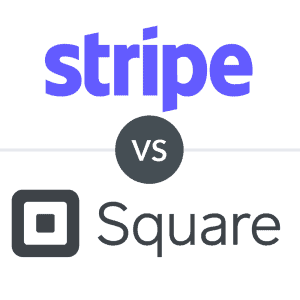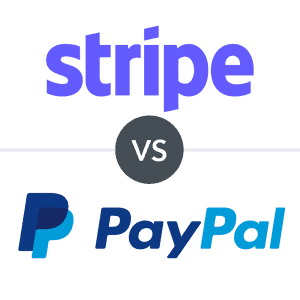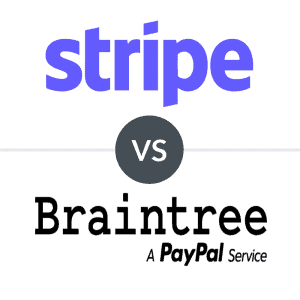If you want to sell online, you will need a payment gateway to connect your payment processor to the internet so you can get paid.
Our content reflects the editorial opinions of our experts. While our site makes money through
referral partnerships, we only partner with companies that meet our standards for quality, as outlined in our independent
rating and scoring system.
If you’ve ever purchased something online, you’ve used a payment gateway. Payment gateways are what make eCommerce possible. And yet, payment gateways tend to be a source of confusion for merchants. What is a payment gateway vs a payment processor? Who needs one? And what tasks are payment gateways for specifically?
In this post, we’ll explore what a payment gateway is and what differentiates it from a payment processor. We’ll also help you evaluate the best online payment processor options for your small business and compare top payment gateways.
Payment Gateway VS Payment Processor Overview
| Payment Gateway |
Payment Processor |
| Encrypts and transmits consumer data from website or terminal |
Provides a merchant account or aggregator service |
| Can offer access to payment methods beyond credit cards (ACH, crypto, etc.) |
Enables credit card processing |
| Requires a payment processor to take credit card transactions |
Handles communication between businesses and banks involved in credit card transaction |
| Necessary for online credit card transactions |
Necessary for both online and in-person credit card transactions |
| May offer additional features (currency conversion, shopping carts, etc.) |
May offer additional features (inventory management, scheduling, etc.) |
What Is A Payment Gateway?
A payment gateway is a software service that verifies credit card information, encrypts it, and transmits it between the issuing bank, the acquiring bank, and the customer interface. Payment gateways effectively serve the role of terminals for eCommerce transactions.
Payment gateways can also process direct transactions using alternate payment methods, including ACH payments, bank-issued debit cards, or even cryptocurrency.
How Does A Payment Gateway Work?
Here’s a quick rundown of how payment gateway credit card processing works.
1. The Customer's Payment Information Is Taken & Encrypted
After placing an order, the customer’s payment information is then securely uploaded to the payment gateway system. The gateway encrypts this information and sends it to your merchant account or a third-party processor.
2. The Credit Card Association Charges A Fee & Sends The Payment To The Issuing Bank For Approval
The transaction data is routed to your credit card association (think Visa, etc.), which then charges the processor an interchange fee if the transaction is approved. The transaction is then either approved or declined by the customer’s issuing bank.
3. The Authorization Goes Back To You
After authorizing or declining the transaction, the issuing bank transmits this information back to the credit card association. From there, it goes back to your merchant account/processor, then to your gateway, then to your website, where you and your customer learn of the approval or denial of the transaction.
4. Funds Are Sent To Your Merchant Account & Transaction Is Processed
Assuming the transaction is authorized, the issuing bank releases the funds to the acquiring bank to cover your customer’s order and the fees owing to all parties to the transaction. The acquiring bank then sends the funds to your merchant account and alerts your processor.
5. Your Business Receives The Transaction Proceeds
The processor, credit card association, acquiring bank, and the issuing bank all get a cut of the processing fee. The remaining funds get deposited in your business’s bank account. Merchants usually receive their funds within 48 hours. If the transaction is declined, your funds might be held while the processor investigates.
Payment Processor VS Payment Gateway
A payment gateway handles the eCommerce portions of your transaction, including encryption and transmission of data between parties. A payment processor provides a merchant account or aggregator service and is responsible for settling transactions between the issuing bank, the credit card association, and the acquiring bank.
You’ll often see the terms payment gateway and payment processor in close proximity to each other, and they can sound pretty similar. They are, however, not interchangeable terms.
You’ll need a payment processor for both eCommerce and brick-and-mortar transactions. Payment gateways are necessary for eCommerce, but are generally not required for in-person transactions. That said, payment gateways may still be used for POS transactions to add security features or accept alternative payment methods or currencies.
Payment Gateway VS Merchant Account
A merchant account is an account that accepts payments from your customers after the payments have been processed. Your merchant account allows payment card funds to be sent by the acquiring bank and processing charges to be deducted by the processor before sending the funds to your checking account.
Merchant accounts are not a feature of payment gateways, although you’ll often see payment gateways bundled with them. You’ll need a merchant account or a third-party processor to accept credit cards.
Note that a merchant account is distinct from your business checking accounts. Merchant accounts only have one purpose, and that’s settling credit card fees.
Types Of eCommerce Payment Gateways
An internet payment gateway can be offered in one of three ways.
Redirect Gateways
A redirected gateway is the simplest and least expensive way for a merchant to implement gateway services for web payment. When a customer goes to check out after putting items into their cart and is taken out of your online store and sent to a separate site (often a PayPal page) to complete the transaction, this is known as a redirect.
A redirect is convenient for the seller, as the redirected gateway lets another platform handle the task of processing the payment. However, it also entails the merchant having less control over the process. Additionally, the customer may not appreciate having to complete their purchase on another site or may lose trust in the payment process, both of which can result in lost sales.
Checkout On-Site With Off-Site Credit Processing
With this kind of payment gateway, the customer checks out on your site, but the gateway directs the payment to be processed off-site. This is what happens when you use Stripe as your online payment gateway.
Off-site processing allows the merchant to avoid having to process payments on-site and doesn’t fluster the customer by taking them to another website to complete a purchase. However, the seller is still relinquishing control to the off-site gateway. You may get blamed for gateway problems over which you have no control.
On-Site Gateway & Processing
On-site processing is the preferred solution for larger, well-resourced businesses. In this setup, the gateway and the payment processing all occur on your server — essentially, you handle everything.
This kind of gateway setup ensures that you retain control over each step in the checkout process. You won’t be reliant on another service to provide a good experience to your customers. However, you’ll be responsible for any problems that arise, and you’ll need to have the capacity to handle this responsibility.
Additional Features Of eCommerce Payment Gateways
Payment gateways are a lot more than just a glorified messenger service for your online credit card transactions. Here are some additional things payment gateways can do.
- Recurring billing: If you offer a subscription-based service, a payment gateway may come in handy even if you deal mainly with brick-and-mortar transactions. ACH processing, in particular, can save you a lot of money when it comes to recurring billing.
- Novel payment methods: From international payment methods like Alipay to Bitcoin, payment gateways may offer access to less commonly used cash alternatives. These can provide convenience to your customers and give you alternatives if interchange fees are cutting a bit too deeply into your profits.
- Currency conversion: Looking to sell internationally? The ability to settle in the currency of your choice is generally a function of your payment gateway.
- Enhanced security: For modern eCommerce outfits, PCI compliance is a must. Several gateways on the market today simplify PCI compliance for eCommerce merchants. Transactions are conducted on the gateway provider’s servers, not the server hosting your website. Because the gateway interface is integrated into your website, the customer never needs to leave your site to complete an order. It’s a bonus if the gateway also offers tokenization, a complex process that further protects your customers’ credit card information.
- Portability: While some payment gateways (Stripe, for example) are tied to a specific payment processor, many can be used with the payment processor of your choice. Just be aware that payment gateways usually are cheaper when bundled with a payment processor.
- APIs: Payment gateways usually offer a wealth of customization tools for developers.
How Do I Choose A Payment Gateway?
Different payment gateways come with a variety of functions and specializations, so the best payment gateway for one business will be different than another. Remember that:
- A payment gateway is not required for in-person credit card transactions.
- A payment gateway is typically less expensive if you get it through your payment processor.
- A payment gateway should offer your customers flexibility in how they pay for your services.
In Conclusion: Payment Gateway VS Payment Processor
Payment gateways perform the basic function of facilitating the processing of credit card transactions over the web and bring a host of security and fraud prevention features that protect both you and your customers. Make sure these features are included when choosing a payment gateway.
Integrations with online shopping carts and accounting software (such as QuickBooks) make running your business smoother and more efficient. eCommerce businesses would be well-advised to look for such integrations when shopping for a credit card processing gateway. They’ll make your life easier!
While not every business needs a payment gateway, every business can usually benefit from some aspects of a gateway. Since the best small business credit card processors all offer at least one payment gateway option, it makes sense to consider using a gateway even if you do not absolutely need one.












